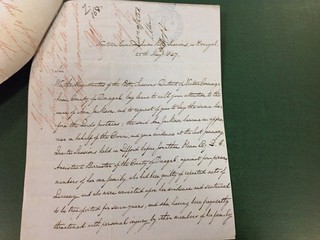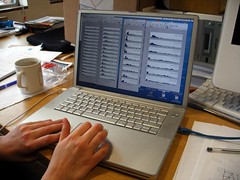
Since beginning the course we have been told about the importance of collecting primary source data. Our second video this week was by Stefan Petrow about primary and secondary sources. Here are my notes.
Approach your sources with a set of questions in mind – on the trail of a problem
Seven steps to good research
- Ask right questions
- Find relevant documents
- Search in documents
- Taking notes by summarizing or quoting
- Writing arguments or stories from info
- Position yourself in relation to what others have written
- Draft, edit and revise to produce polished piece of historical prose
Fun lies in finding interesting information, continually finding more questions and documents
Don’t ignore evidence that is not what you expect to find
Primary Sources
First hand accounts of an event and created during time event took place or created retrospectively by a participant in the event
Best form of evidence is original document or record – next can be scanned or microfilmed or photocopy of original
Seven categories of primary sources
- Family
- Public
- Institutional
- Newspaper and post office directories
- Non written sources
- Physical evidence
- Oral history
Newspapers often secondary source as journalist not always at the event
Basic questions to ask re primary sources
- Where and when was record made – published or personal
- Who made it
- For what purpose – official or personal
- Did info come from someone with personal knowledge of facts
- What conventions exist that shape info – church vs tax lists vs census
- Reason for informant to provide inaccurate info – bias
- Corroborating testimony
As family historians weigh evidence – don’t blindly accept information – evaluate and record sources – trace back to primary record
John Tosh’s book about history – research carefully and systematically, gather lots of information from lots of sources
Secondary sources
Written after the event – sometimes based on primary sources
Provide background information relating to life or period of time in your families life.
Questions re secondary sources
- Who is author – claim to expertise – do they have bias
- Book or article for general audience or scholarly work – sources clearly set out
- Claim of author, interpretation or range of evidence
Footnotes are most important to cite your sources for future generations and researchers
The primary source used for the image above was found at the National Archives of Ireland in June 2014. I used the “Outrage papers of Donegal for 1847” looking for any reference to my JACKSON family.
For my readers: What has been the most unusual primary source you have found with information relating to your family history research?

